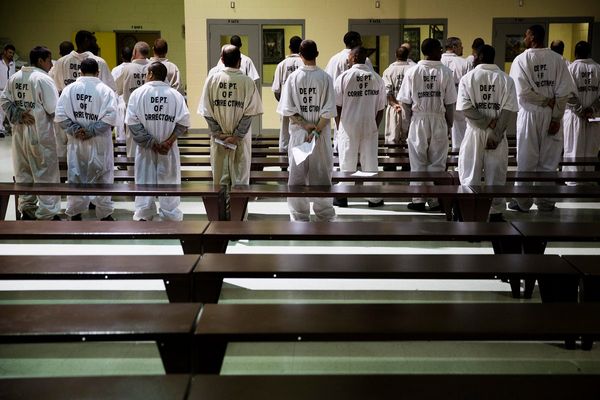
With its depleting energy reserves, Europeans are inching towards a winter filled with hardships and lot of limitations. People might be left with a limited stock of gases for their central heating system, lights, and even ovens amid the falling temperatures this season. All thanks to Russia's Ukraine invasion and West sanctions on it.
In many European countries, statues and historic buildings are left in dark to save energy for the coming season. Rising energy bills due to expensive fuel have forced many bakers to give up their profession because of their inability to bear the cost of using the oven, reported AP.
In the poorer regions of Europe, people are collecting firewood to battle the chilling wind in the coming season, cited Associated Press.
Many European countries began preparing for the winters in August only. To guard itself against Russia's falling energy supply, Spain government reduced the maximum heating temperature to 19 degrees Celsius in winters and increased the cooling temperature to 27 degrees Celsius during summers in its public buildings, the reported Guardian.
Why will the coming winter be colder for Europeans?
Europeans are heavily dependent on Russian energy. With Russia using it as a weapon against west sanctions, it will be the Europeans who will bear the brunt of rising energy cost and depleting energy reserves.
Before the outbreak of the war in Ukraine, European Union nations used to meet 40% of their energy needs from Russian natural gas. It was also one of the most common energy sources in Europe after petroleum oil. With the halt in the supply of energy natural gas from Russia, the natural gas price has skyrocketed causing a rise in the electricity bills.
The dire situation has forced the governments that were major advocates of reducing carbon emissions have now turned to coal plants and nuclear sites to meet their demands. Moreover, many of the EU governments have also nationalised utility companies to save them from going bankrupt.
The EU can't ramp up its natural gas production in such a short period and also find a viable alternative to the Russian supply. At this juncture, most governments have no option other than saving their reserves for the winters. Many governments have already brought policy measures to do so.
Besides the energy requirement of the households due to winters, there is a constant threat of industrial shutdown due to severe depletion of energy reserves in the region. From the automotive industry to fertiliser manufacturing plants, everything will come to a standstill if Europe runs out of energy.
How is Russia using energy as a weapon?
Weeks after stopping its energy supply on its gas pipeline Nord Stream to Europe, there are recent incidents of harm to Germany’s main pipeline for gas from Russia, ie Nord Stream 1 and 2. This is a clear indication that Europe has to survive without any significant Russian energy flow.
The Nord Stream 1 pipeline is made of two parallel branches. The pipeline is shut since August when Russia closed it down citing maintenance issues. The gas pipeline, which is not less than the energy lifeline of Europe runs under the Baltic Sea from the Russian coast near St Petersburg to north-eastern Germany.
Its twin, Nord Stream 2, was stopped when Kremlin began its invasion of Ukraine. Despite being out of operation, the pipeline contained gas.
West plans to impose price cap on Russian energy
To limit Russia's earning from its energy exports, seven nations from G7, ie the US, Japan, Germany, Britain, France, Italy, and Canada along with the European Union are planning to implement an oil price cap. In the ongoing UNGA meeting, these countries have attempted to include more nations in the price capping mechanism. However, Russia has made it clear that it won't supply energy to any of the nation which follows the price cap. This announcement might deter many countries to be a part of the price cap.
The looming threat to EU's industrial sector of an all-over shut down due to energy crisis
Besides the situation of people living in European countries, there is a constant threat looming in the industrial sectors of these countries.
According to Bloomberg, the energy crunch can break the industrial supply chain in dramatic and unpredictable ways. With the rising energy costs, the expenses of individual businesses are also reaching close to their threshold point above which they won't be able to operate. There are other sectors like fertilizer or steel which can also face an extreme crunch of energy-intensive inputs. In the power system, once a blackout starts, it can quickly get out of control, cascading across the grid.
“Europe is very clearly heading into what could be a fairly deep recession," a former chief economist at the IMF Maurice Obstfeld, told Bloomberg.
European Central Bank's crackdown on inflation
The situation aggravates further when European Central Bank comes into play to control the surging inflation by raising interest rates. There are chances that the central bank may hike interest rates to its record level in the coming meeting. ECB President Christine Lagarde said that she is expecting policymakers to increase borrowing costs at the next several meetings, reported Bloomberg. There are also speculations of a jumbo 75 basis-point hike at the next monetary policy meeting on 27 October.
Mega giant companies signal long-term harm due to persistent high cost
Industrial experts are signalling a long-lasting crisis that can go way beyond the oil-supply crunches of the 1970s, Jamie Rush, Bloomberg’s chief European economist, said.
The situation of manufacturing companies like Evonik Industries AG hints at a similar situation. The Germany-based company, which is one of the world’s largest specialty chemical manufacturers, has warned of the potential long-term harm from persistently high costs, reported Bloomberg.
“The basic condition for the prosperity of the German economy, and in particular of the industry, is the permanent availability of energy, also from fossil sources, at reasonable prices," the company said.
Along with Evonik Industries, Volkswagen AG, Europe’s biggest carmaker, is finding alternative suppliers of natural gas to counter its shortage of energy supply. The company has a broad supplier network in Europe. Other big companies are shutting the operation of their manufacturing plants in Europe.







